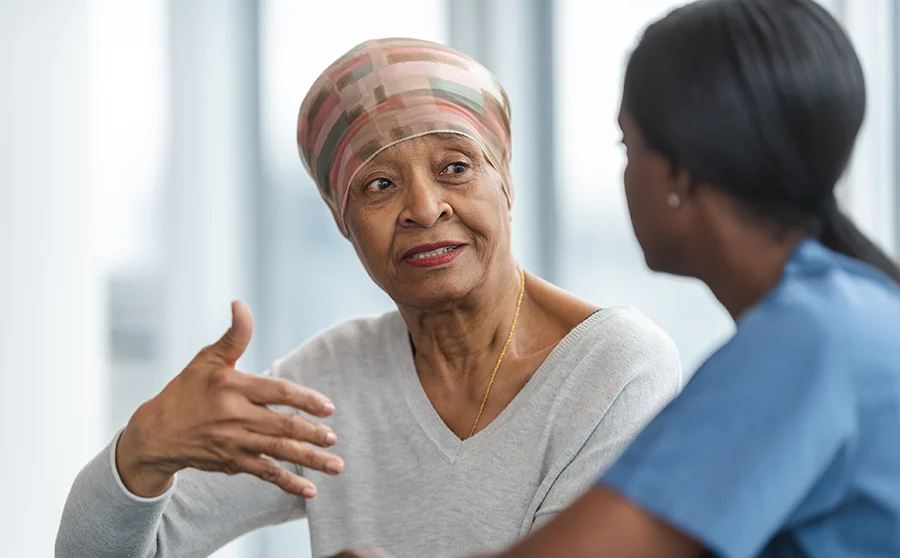
We are intentional about addressing intersectionality in barriers to healthcare for people who don’t speak English, people with disabilities and chronic conditions, and people who are undocumented.
Black people, immigrants and people of color are at disproportionate risk of being uninsured, lack access to care, and experience worse health outcomes. Racism is a public health emergency. Non-English speakers, people with disabilities and chronic conditions, rural residents, and people who are undocumented also face specific barriers to accessing healthcare. The Shriver Center drives efforts to improve and expand access to dental, vision, and mental health care for these communities, care which is critical to people’s ability to work, learn in school, and experience a good quality of life.
We are on the front lines of the national fight to eradicate discrimination in health care as steering members of the Protect Our Care, Protecting Immigrant Families, and Healthy Illinois Campaign coalitions and work in collaboration with community-based groups, health-care providers, and other advocacy organizations to challenge discriminatory federal policies.
Medicaid played an important role as an essential source of health insurance for millions during the COVID pandemic.
Stephani Becker, the assistant director of health justice for the Shriver Center, recently spoke about the significance of the exchange and our continued efforts to expand health care to everyone in Illinois.
The stimulus bill is taking its place in history as one of the largest anti-poverty measures in a generation.
Six things Congress and the Trump Administration can do right now
According to the Consumer Protection Financial Bureau, $88 billion in unpaid medical bills are in the hands of debt collectors. That’s more than any other type of personal debt. One unexpected procedure or sudden loss of employment can have devastating financial consequences for families and individuals in need of health care.
Last month, the Centers for Medicare and Medicaid approved the state’s application to use Medicaid funds for assistance with nutrition, housing, violence reduction and prevention, and transitions out of incarceration. It makes Illinois the first state to tackle such a broad range of social factors through Medicaid.
Long-term care is a vital service that should be available to all Illinoisans.
Recommendations to the Illinois Department of Public Health
Oct 2020
Racism is a public health emergency.
Jul 2020
A collection of readings, research, and tools to help guide an understanding of structural racism.
Mar 2020
Links to information and useful resources to aid communities seeking support during the COVID-19 pandemic.
Apr 2020
COVID-19 has revealed the high cost of policies that have kept undocumented immigrants without access to healthcare, housing, and food assistance.
Mar 2020
Learn more about strategies to ensure healthcare coverage for all.
Jun 2020
The Fight for Environmental Justice in Federally Assisted Housing

